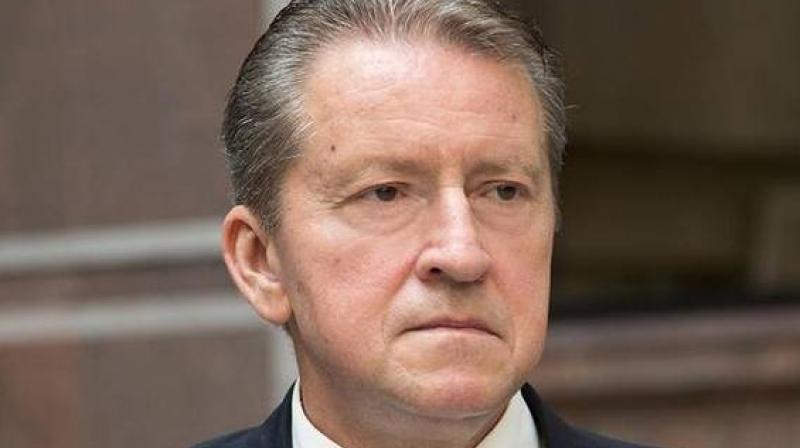Russia reiterates its support to India on abrogation of Article 370

New Delhi: Russia came out strongly in support of India once again on New Delhi’s recent decision to bifurcate J&K State into two union territories and revoke Article 370, with its Ambassador Nikolay Kudashev on Wednesday saying the Russian position was “almost 100 percent identical” to the Indian position.
The Russian envoy also said the “sovereign” decision of the India “belonged to the constitutional space of India thus making it naturally an internal matter of India”.
He was addressing a media conference ahead of Prime Minister Narendra Modi’s forthcoming visit to Vladivostok in Russia next week to be the chief guest at the Eastern Economic Forum there, something which the Russian envoy said would “open a new chapter” in the Indo-Russian strategic ties. In a major move, the two countries also intend to ink a pact soon for construction of at least six more nuclear power plant units.
So far as India’s J&K move is concerned, just a few days ago, a Russian diplomat at the United Nations had raised eyebrows, when he spoke not only about bilateral resolution of issues between India and Pakistan but also about the “UN charter”. But, Russian deputy chief of mission (DCM) Roman Babushkin said the reference to the “UN charter” had been only to emphasise the principle of non-interference in the domestic affairs of other countries as per the UN charter. Speaking after his ambassador, the Russian DCM nevertheless said “any escalation in tensions (between India and Pakistan) is a matter of concern.”
Russian ambassador Mr Kudashev said, “Our position is crystal clear. This decision is a sovereign decision of the Indian government. It (the Indian decision on J&K) belongs to the constitutional space of India thus, making it naturally an internal matter of India. And naturally, we would prefer only issues as they say between India and Pakistan to be resolved through dialogue on the basis of Shimla Agreement and Lahore Declaration. If you were to compare it to the Indian position, then you would come to the conclusion that our positions are almost 100 percent identical.”
Russian DCM Babushkin said, “The Russian position (on India’s J&K move) corresponds to the Indian position.” On the Kashmir issue, he said, “Russia has no role to play. It is a bilateral issue (between India and Pakistan) unless both countries ask for mediation.”
Russia had recently too sprung to New Delhi’s defence on the bifurcation of Jammu and Kashmir (J&K) state and revoking of Article 370, pointing out that “the change in the status of the state of J&K and its division into two Union Territories” has been “carried out within the framework of the Constitution of the Republic of India”. This had supported the Indian stand that the recent developments are an “internal matter” of India and within its “sovereign jurisdiction”. Moscow’s support is crucial for India, as Russia is a permanent member of the UN Security Council (P-5) along with the United States, United Kingdom, France and China.
In response to a question on whether Moscow was worried over Indo-Pak tensions, Mr. Babushkin said that “India and Pakistan enjoy non-official nuclear power status” and that “any escalation in tensions (between the two countries) is a matter of concern”.
When asked about Union defence minister Rajnath Singh’s comments regarding India’s no first-use of nuclear weapons doctrine, Mr Babushkin said, “Hopefully, rhetoric will not lead to real escalation.”
On the issue of terrorism, the Russian deputy chief of mission said, “Both countries (India and Russia) strongly condemn terrorism in all its forms and call on the international community to set up a united front against this evil. We insist on the inadmissibility of double standards (on terrorism) as well as the use of terrorist groups for political purposes.”
On nuclear energy, Mr Babushkin said, “Nuclear energy constitutes a fundamental building block for the strategic partnership in this sector. Russia remains the only foreign country for India which is involved in the physical construction of nuclear reactors here. The implementation of the project includes six power units of the Kudankulam nuclear power plant (which) is well underway. ... We intend to sign a general project for construction for at least six more units of the nuclear power plants in India.”
On railway cooperation, Mr Babushkin said, “There are good prospects for scaling up in the railway transport sector. We welcome the successful participation of the Russian Railways in implementing the project to build high-speed railway communication between Nagpur and Secunderabad.”
PM Modi’s visit to participate in the fifth edition of the Eastern Economic Forum as the chief guest of the event will provide opportunities for India to explore bilateral cooperation in the sectors of Diamond-processing, Petroleum and Natural Gas, Coal and mining, Agro-processing and Tourism which have been identified as the priority areas for development in the Russian Far East. Both sides have already agreed to work together to promote their bilateral economic engagement in the Russian Far East.

